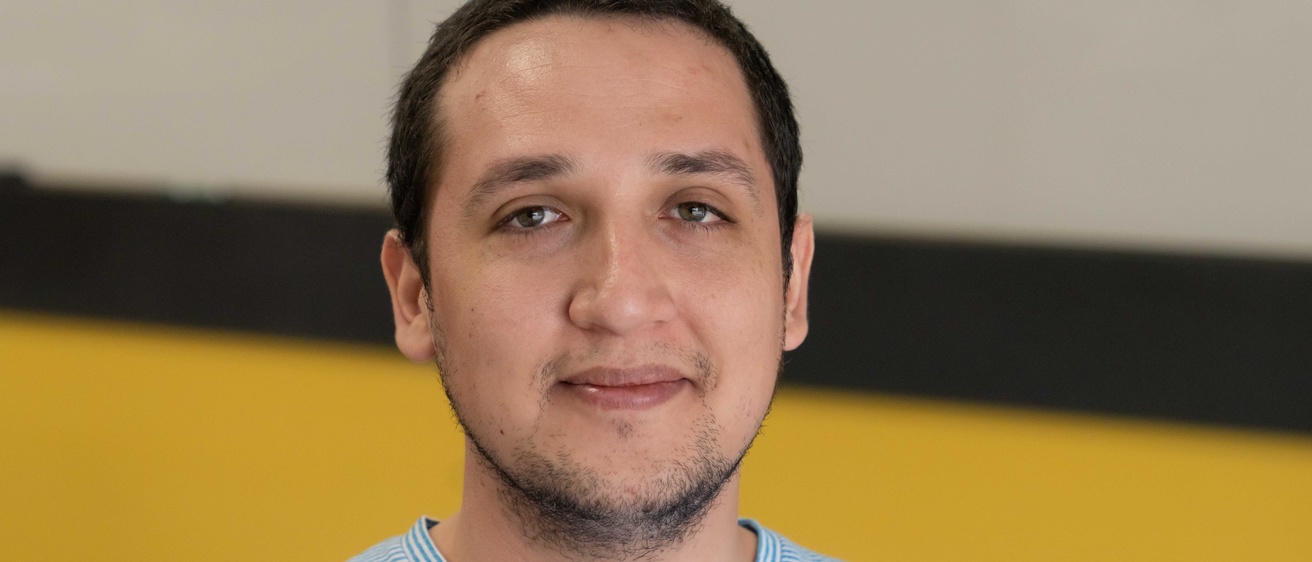Bladimir Padilla-Fuentes' research explores the academic and socioeconomic factors that impact university admissions in Chile. The Chilean native was drawn to the University of Iowa to pursue his doctorate, thanks to the internationally-recognized Educational Measurement and Statistics program.
Padilla-Fuentes is one almost 80 University of Iowa College of Education graduate students and faculty members who are presenting research at the American Education Research Association (AERA) or the National Council on Measurement in Education (NCME) annual meetings– two of the largest gatherings of researchers and scholars in higher education in the world - April 13-16 in Chicago and May 4-5 virtually.
These UI College of Education scholars will join an estimated 15,000 scholars from across the nation and globe, to present cutting-edge research, exchange ideas, engage and network with colleagues, and pursue professional advancement.
Each year, the American Educational Research Association annual meeting is the world's largest gathering of education researchers and a showcase for groundbreaking, innovative studies in an array of areas. The 2023 annual meetings are dual-component conferences. The place-based component will be held in Chicago, Illinois, April 13-16. The virtual component will be held online May 4-5.
NCME is a community of measurement scientists and practitioners who work together to advance theory and applications of educational measurement to benefit society. The NCME annual meeting is held in conjunction with AERA's annual meeting.
Learn more about Padilla-Fuentes' research below and the internationally-recognized Educational Measurement and Statistics program in the Department of Psychological and Quantitative Foundations at the UI College of Education.
Name: Bladimir Padilla-Fuentes
Major and academic program or status: doctoral student in Educational Measurement and Statistics (EMS) in the University of Iowa College of Education
Hometown: Chillán, Chile
National Council on Measurement in Education (NCME) research presentation topic: "Impact of Academic and Socioeconomic Factors on University Admissions in Chile" - co-presenting with graduate student Mubarak Mojoyinola
Time and location of research presentation: Thursday, April 13, from 11:40 a.m. to 1:10 p.m. Marriott, 7th Floor, Salon I (GSIC eBoard Session 1)
Area of research interest and expertise:
Higher education (admission to selective universities in Chile)
What motivated you to pursue this research? Where does your inspiration come from?
Socioeconomic differences in the chances of being admitted to a selective university in Chile. This affects many students and should not happen.
How will your research make a positive difference or improve lives?
Findings from the type of research I do can help improve the admission process. It is important to identify what non-academic factors (variables) are affecting students' chances of admission.
Are there similar issues or trends in Chilean admissions versus the U.S.? How are they the same or difference?
Both admission systems are based on the selection of students according to objective parameters, especially test scores. I believe that in both systems the problem is that socioeconomic and demographic backgrounds affect the admissions process, so that not everyone has similar opportunities to reach selective higher education. In the Chilean case, there are still not many problems related to differences by race or ethnicity among students when they want to enter university, as in the US. I believe that in the future, with the growth of migration in Chile, both systems will have similar inclusion challenges.
What drew you to the EMS program and the University of Iowa? Why Iowa?
The courses and teachers. I think this program had everything I was looking for: focus on educational measurement and statistics applied to educational research. In addition, the professors have experience and research interests that are very important for the development of educational research.
What is the best part of the program?
The work of teachers (their pedagogical style). The content, homework, research projects and assignments are very important for learning; however, I think it is the work of the teachers that gives meaning to everything else. They are people who know what and how to teach, I love that.
What is the most important thing you've learned from Iowa? Who are what was your biggest influence?
I would say the most important thing I've learned so far is how to do good research work. My main influences right now are Carlos Rodriguez (Chile), Lesa Hoffman (EMS), and Ariel Aloe (EMS). They have taught me how to transform research questions into research projects using proper techniques of analysis and interpretation of results. Their influence is invaluable.
What is the best advice you could share with students thinking of pursuing graduate education or coming to Iowa?
If you can, do it! Some processes are difficult at first and you may think that you are alone or have no support, but then you realize that by making an effort you can achieve your goals and that there are people willing to help you.
What is most rewarding about your work?
Helping others learn how to do educational research. I love to do research and share the results to try to improve the Chilean educational system; however, I believe my passion is teaching. Helping others to learn, that what I what to do in the future.
What are your future plans?
Continue researching the selective higher education admission process in Chile. Obtain my PhD degree. Return to Chile and work at the same university where I studied teaching about analytical techniques for educational research. Work in the educational research center of the university (CIDCIE) and form a research group with undergraduate students. I hope to have the energy to accomplish many projects.
